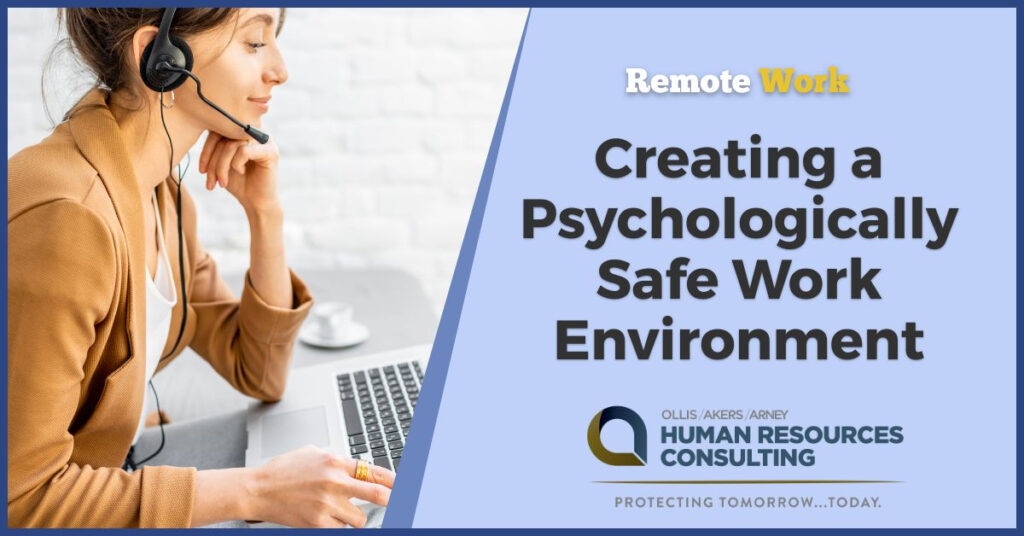Psychologically safe employees feel confident sharing ideas, asking questions, being themselves and even challenging the status quo—without the fear of being punished or humiliated. Remote work can put company culture and team trust to the test. However, the concept of psychological safety can still be achieved regardless of team or workplace location.
According to research, you may progress through four sequential stages of psychological safety:
- Inclusion—You feel safe and accepted to be who you are.
- Learner—You feel safe learning, asking questions, and giving and receiving feedback.
- Contributor—You feel safe contributing with your skills.
- Challenger—You feel safe speaking up when you see room for change or improvement.
After progressing through those four stages, you are more likely to be comfortable speaking up in the workplace.
Psychological safety typically hinges on organizational leadership, but there are ways that remote employees can challenge or influence workplace cultural norms. Consider the following ways you can help create a psychologically safe work environment:
- Listen actively. Active listeners can make others feel valued by avoiding distractions and demonstrating understanding. Turn on your camera in meetings so it’s apparent you’re paying attention and engaged.
- Practice awareness. During meetings or conversations, pay attention to how your words, actions and other nonverbal cues resonate with others.
- Communicate effectively. It’s essential to set clear expectations for timelines and goals. It’s also critical to check in often to lower the chances for miscommunication over emails and chat messages.
- Get to know co-workers on a personal level. It can be challenging to make genuine connections with peers remotely. However, personal and casual conversations can help create bonds with your co-workers, so ask open-ended questions and give
others a chance to talk. Plan or ask for team-building activities, such as virtual trivia or happy hours.
- Recognize courageous acts. It’s vital to praise or acknowledge a co-worker when they show vulnerability or offer a new idea so they don’t feel embarrassed or unheard. You could simply send an email or shoot them a quick chat to give kudos.
While working remotely, you’ll have to be very intentional with showing appreciation and acceptance for co-workers and their ideas, thoughts and discussions. Talk to your manager if you have concerns or questions about psychological safety in your work environment.
This article is intended for informational use only and should not be construed as professional advice. © 2022 Zywave, Inc. All rights reserved.






